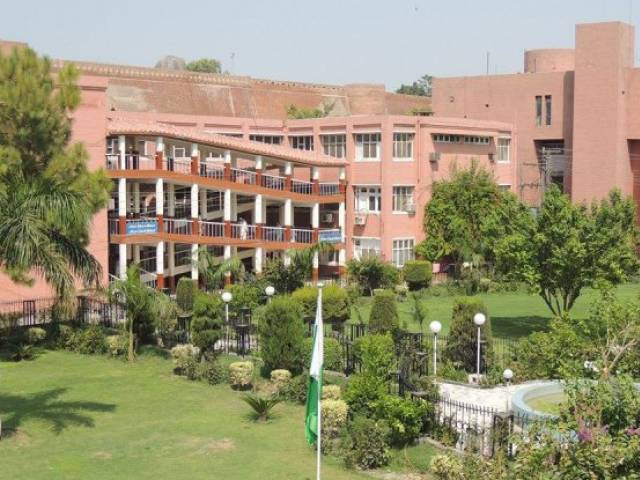Without a vision: Ocular ultrasound, slit cameras, lenses out of order at LRH
Ward officials blame administration for turning a blind eye

Lady Reading Hospital. PHOTO: www.lrh.gov.pk
While the Pakistan Tehreek-e-Insaf-led provincial government promised revolutionary changes in the health sector, people seeking diagnosis for ocular or eye-related problems at the province’s major health facility remain out of luck.
Lady Reading Hospital (LRH) has been offering services for decades, however, in the absence of basic machines used to diagnose eye diseases, those who visit the out-patient department (OPD) face tremendous trouble.
Officials requesting anonymity told The Express Tribune apart from the B-Scan machine, the ocular ultrasound machine has also been out of order for the last two years at the LRH out-patient department.

A senior health official said slit lamp cameras were also out of order and the 90-D small lens was not working properly. Health employees had also been facing problems while using the microscope.
He added patients with such complaints were compelled to visit private facilities.
“I am not saying everything is out of order but the machines I have mentioned are the ones used to diagnose eye diseases [such as glaucoma, cataract or injury] and unless diseases are diagnosed, they cannot be cured,” he said.
Turning a blind eye?
Another official dealing with the eye ward, also requesting anonymity, said the laser machine was out of order for the past eight months. While the head of the department had written letters to the administration about the faulty machines on several occasions, they had not been paid heed to.
“The head of the department, without wasting time, brought the issue into hospital administration’s notice as well as that of OPD patient manager but I wonder why the former has failed to address the issue,” the official said.
He said when the OPD clinics were held twice a week, around 400 patients used to visit the department. However, with an increase in the number of OPD days to five, the number of patients visiting the department has also risen.
Questioning the work ethic of the administration, the official said, “[Some of the] equipment that we use was purchased in the 1980s and 1990s. Everything has a time limit. The administration is neither willing to repair old machines nor purchase new equipment.”
When contacted, Dr Zafar Iqbal, head of the eye department, refused to comment on the issue.
LRH Medical Director Dr Amir Ghaffur, however, said whatever the department demanded was provided by the hospital administration. Ghaffur added it would not be appropriate to talk about the issue in the absence of records before him.
KMC forensic lab short of staff, equipment
Officials of Khyber Medical College (KMC) told Minister for Health Shahram Khan Tarakai and Secretary for Health Abid Majeed of the problems at the forensic lab. They specifically pointed out the shortage of staff and equipment at the facility. According to a handout issued from the ministry of health, KMC officials apprised the minister and secretary during their visit to the college.
KMC Principal Professor Dr Ejaz Hassan Khan and Forensic Medicine, Toxicology and DNA Profiling Professor Dr Hakim Khan Afridi briefed Tarakai and Majeed about the performance and difficulties faced by the department.
They said during 2013, the department carried out 1,127 post-mortems, in 2014, it carried out 1,201 post-mortems and in 2015, it carried out 966 post-mortems. They added the department was not only overloaded but also short of staff and machines.
The minister approved Rs51 million for the purchase of equipment for toxicology lab, provision of special package to KMC doctors conducting post-mortems and recruitment of required staff in DNA and toxicology labs.
According to the handout, Tarakai said the K-P government was providing modern health care facilities to hospitals across the province.
“Post-mortem facility at divisional headquarters hospitals will be provided under post-mortem experts, ensuring proper reporting of cases to courts thereby facilitating the process of providing justice,” Tarakai was quoted as saying.
Published in The Express Tribune, April 2nd, 2016.













COMMENTS
Comments are moderated and generally will be posted if they are on-topic and not abusive.
For more information, please see our Comments FAQ